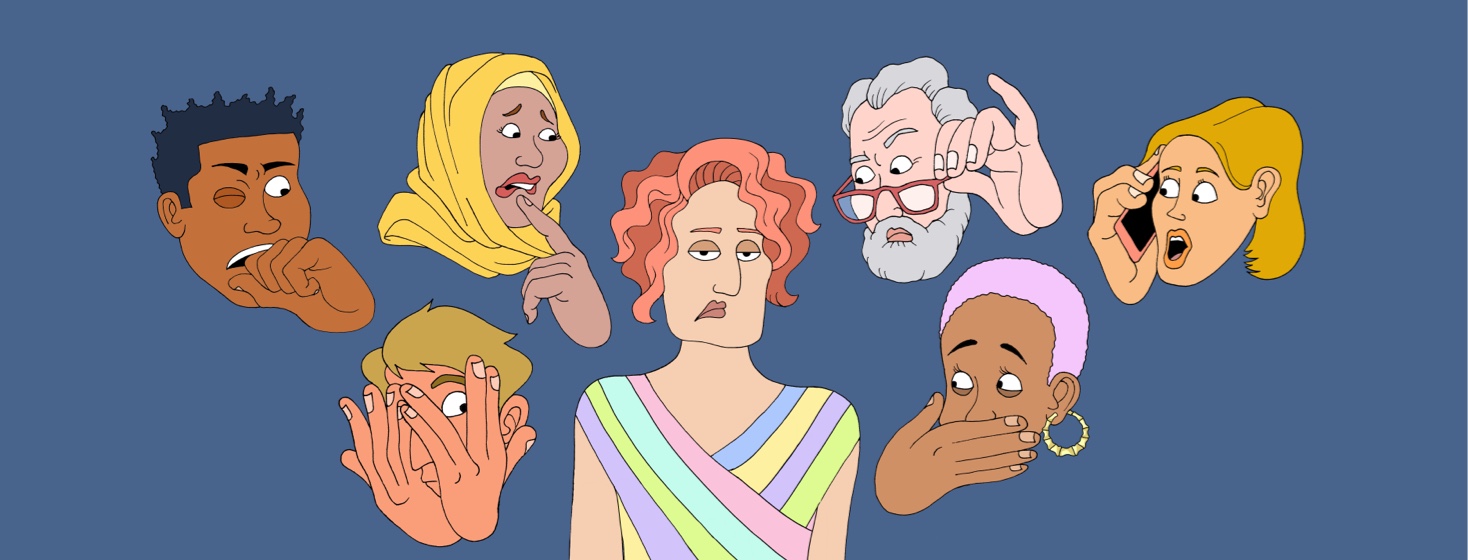Unraveling the Layers of Mental Health Stigma
While several health conditions face problems related to stigma, the stigma around individuals with mental health conditions is some of the most prominent. Those of us living with depression have probably sensed or witnessed this at some point, in some way.
The problem is, because of this depression stigma, an individual may choose not to seek care for their depression or other mental health issues. There can be a fear of being discriminated against when confiding in someone else about how they're feeling, such as feeling depressed. And even more so, this fear can exist when it comes to reaching out for professional help. It can be a major barrier.
Examples of depression stigmas
There are several different types of stigma that exist. A few of these examples of stigmas include, but are not limited to, public stigma, internalized stigma, and institutionalized stigma.1
Public stigma
Public stigma revolves around negative attitudes or discrimination based on the public's opinions about individuals with mental health issues. There has often been the misconception that people with a mental illness are dangerous, or that the person experiencing a mental health condition it is to blame for their health issue. These judgements can create problems when it comes to seeking help from emergency services, whether it be at a hospital ER or in an encounter with police. It creates feelings of shame and blame.
Facing this type of publics or social stigma is something that I have personally experienced many times. This stigma is one I have been subjected to even by some of my family members. While I know my sister loves me, she is one of those individuals who believe that you should just "suck it up." My sister has never experienced mental health challenges. I think this makes her view depression as just being a little sad every day, instead of for the health condition that it is.
Internalized stigma
Internalized stigma occurs when someone takes the public stigmatizing beliefs and adopts them as their own beliefs about themselves. This can have drastic effects on an individual's self-esteem. And again, the major risk with the sense of self-worth being lowered further by internalized stigma is how it can lead to avoiding seeking help.
At times in my life, I have allowed other people's opinions about living with depression to affect my views on my major depressive disorder diagnosis. When you know you are living with depression and you begin to internalize misconceptions, it is easy to make yourself feel worse about the situation.In my case, this increased my depression and caused me to withdraw even more, which was isolating.
Institutionalized stigma
Institutionalized stigma can also be called structural stigma. It's when there are unfair policies that discriminate against those with mental health conditions. These policies can affect how hospitals treat patients who are experiencing mental health challenges, or even how police officers interact with civilians who are known to have mental illness.
While I have not faced institutionalized stigma myself, I have feared experiencing it when it comes to my employment. This has meant that I tend to "fake it until I make it" through my workdays. Pushing through feels like the only option sometimes.
This or That
When something is bothering you, what do you tend to do?
Fighting depression and mental health stigma
It is so important to fight mental health stigma. As a society, we can de-stigmatize depression and mental illness by educating the public and the our institutions about the reality of living with mental health issues. Additionally, increased advocacy work could assist individuals with dispelling some of these types of stigmas. Fighting these mental health stigmas is a task that we should do as a community.
The worst thing those of us living with mental health issues can do is allow stigma to prevent us from getting the care we need.
